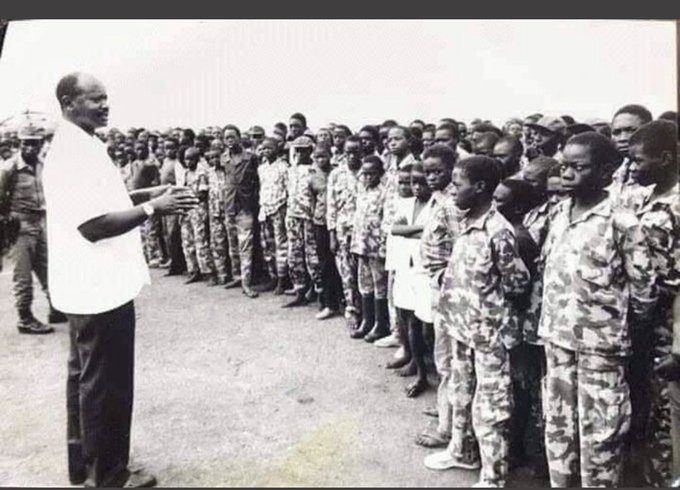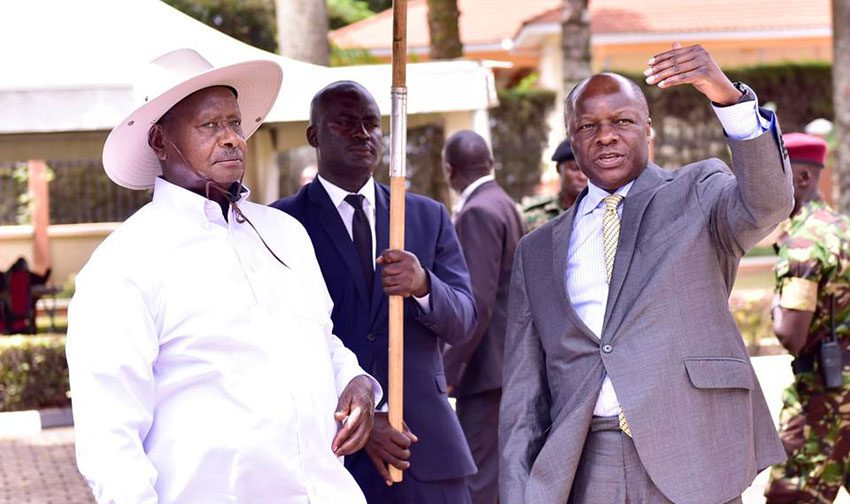As you saw on our site yesterday, we shared the Kabaka’s detailed Easter message, that was officially shared on different social handles of Buganda Kingdom.
In the second paragraph of the letter, HRH cautioned his subjects, to always abide by the agreements they make especially the leaders and politicians, even in the absence of a formal written document or witnesses.
Many analysts have interpreted this statement differently, but nevertheless, let me share with you one of the analytical sides i personally have on this statement.
After the 1980 election that is said to have fraudulently brought back Obote II, many opposition leaders refused to accept the results, which led to the creation of different rebel groups like Yusufu Lule’s Uganda Freedom Fighters, Kayiira formed the Uganda freedom movement , the Uganda National Liberation Front that had ousted Amin and Museven’s Popular Resistance Army,
The Popular Resistance Army later joined forces with Prof. Yusufu Lule’s Uganda freedom Fighters, hence forming the National Resistance Army in 1981.
This was after Museveni’s failure to secure the number of guns he had wanted to get through their attack that is commonly referred to as the Battle of Kabamba and the human capital challenges he faced in the battle of Kiboga.
Remember that after the 1980 elections, Museveni had started the war with just his body guards and a few people who still paid allegiance to him from the times of the Front For National Salvation, Museven’s rebel group that participated in the formation of The Uganda National Liberation Front that overthrew Amin in 1979.
So, the formation of the National Resistance Army (NRA) gave him (Museveni) momentum and support especially in Kampala, and in other parts of central and western Buganda, since from the genesis of the bush war, they were relaying on civilian material assistance to conduct their military operations.

Due to the support he had gotten from Buganda, he was able to base his insurgency in the strategically located Luwero Triangle, which was mostly occupied by Baganda.
In 1981, Museveni had met with the 25 year old Prince of Buganda in London and their discussion was on the restoration of Buganda Kingdom in case they win the war.
Museveni assured the Young Prince then that he would restore what Obote’s government had abolished, hence the invitation of Prince Mutebi to Luwero.
Museveni, the Prince and his handlers knew very well how powerful and fundamental Kabaka’s appearance in the bush would positively impact their struggle.
Which i believe is one of the reasons why the Kabaka’s visit was delayed up-to 1985 because the two parties had things they had to agree on before his secretive visit in the Luwero Bushes.
Most analysts have written on the role of the Kabaka in the success of the National Resistance Movement bush war, and most of them agree that he played a pivotal role to the success of this war.
The truth is that Museveni and the Kabaka of Buganda have things they don’t agree on, but this doesn’t mean that they are enemies, and i am very certain that when HRH encouraged his subjects to always keep their word, he was refereeing to some of his lived experience he has had as leader, but most likely with the NRM government.



